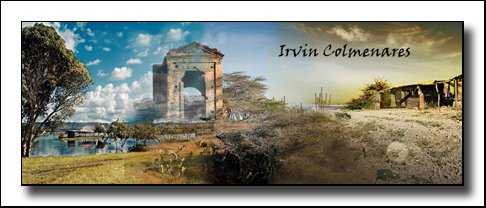
A finales de los sesenta uno de los grandes temas de conversación en los recesos escolares del liceo donde estudiaba era la nueva serie que Venevisión (uno de los canales comerciales de mi país y que todavía está operativo) transmitía los domingos en el horario de las 8 pm.
Los muchachos no dejaban de hablar de las hazañas que el equipo al mando del señor Jim Phelps (Peter Graves) hacía en los rincones más apartados del mundo.
Al principio yo no participaba en esas conversaciones porque en la zona donde vivía no llegaba la señal de TV, hacía falta una repetidora que fue construida algunos años después.
Pero la presión del grupo era tan grande que logré un acuerdo con mi padre. Cada quince días podía quedarme en casa de mi abuela, donde si podía ver la televisión y el día lunes me iba solo al liceo. Si mi padre recibía alguna queja por haber llegado con retraso a clases me suspendía el beneficio.
Fue así como me hice fan de la famosa serie Misión Imposible, iniciada en 1966, una de las mejores de la época dorada de la televisión en los años sesenta y setenta.
Mis tíos y yo veíamos los capítulos como si estuviéramos en el cine, en la tarde preparábamos aperitivos y bebidas que apurábamos atragantados a medida que transcurría la trama.
La emoción comenzaba desde el mismo momento de la presentación, unos compases de piano, seguidos por una percusión muy a tono, ya preparaban el ánimo para lo que venía después. Este es uno de esos ejemplos donde la música juega un papel determinante en motivar sentimientos en el espectador.

En cada intermedio de propaganda cada uno de los tíos adelantaba alguna idea de cómo continuaría la trama en el segmento siguiente, pero todas esas predicciones se quedaban en el aire debido a lo ingenioso del guión, que siempre tenía salidas que no se le ocurrían a la persona común.
Al final nos quedábamos comentando el capítulo y mi tío mayor aprovechaba de ilustrar algunos aspectos históricos de lo que habíamos ido viendo.
Creo que gracias a Misión imposible fui conociendo mucho más a mis tíos, supe muchas cosas sobre ellos en esos ratos que pasábamos frente al TV. La televisión de aquel tiempo contribuía en mucho a la unidad familiar. Todos veíamos lo mismo en el único TV que había en el centro de la sala. No como ahora que cada quien se encierra en su cuarto a ver su cell.
La serie aprovechaba plenamente la atmósfera cultural del momento. Eran tiempos de la guerra fría, el mundo vivía con cierto temor a que las grandes potencias se vieran confrontadas en una guerra nuclear, la paranoia sobre esto se colaba por muchos lugares.
En un contexto como ese una serie de buenos contra malos, donde a fuerza de ingenio los buenos derrotan cualquier plan malévolo, tenía mucho que ofrecer en cuanto a levantar la moral de la población. Quizá allí radicaba parte del éxito subliminal de un producto como ese.
La serie tenía muchos atractivos. El equipo del señor Jim era muy diverso, tenía hombres y mujeres, blancos y afro descendientes. Algo que no era normal para la época. En otras series como perdidos en el espacio, o los supersónicos, por ejemplo, el reparto era solo de gente blanca.
https://www.youtube.com/watch?v=H5SYHcD_CYA&list=RDH5SYHcD_CYA&start_radio=1
El otro gran atractivo eran las misiones, todas muy cuidadas y donde los agentes hacían gala de su ingenio, tenían habilidad para construir escenarios y suplantar personajes, eran los maestros del engaño. Crear todas aquellas ilusiones con los recursos de la época era un gran reto, sin duda. No eran tiempos de manipulación digital.
La serie también nos hablaba de esos comandos que hacen sus actividades con total autonomía, agentes secretos que viven al límite, casi al margen de la protección de los Estados. Luego de las grandes guerras de ejércitos multitudinarios, los nuevos enfrentamientos se llevaban a cabo por estos grupos discretos, capaces de producir efectos significativos en territorios enemigos.
Buscando información para escribir la nota, encontré que la banda sonora de la serie fue producida por un extraordinario músico Argentino de nombre Lalo Schifrin, quien falleció este mismo año 2025, en el mes de junio.
El señor Schifrin fue el creador de numerosas bandas sonoras para programas televisivos y cintas cinematográficas. En una entrevista comentó que la música tenía que atrapar al espectador totalmente, meterlo de una vez en la trama y no soltarlo hasta que terminara la obra. Creo que el tema de Misión Imposible cumple a cabalidad con ese propósito.
Uno de los grandes méritos de esa banda sonora es que ha logrado mantenerse en el oído del espectador a través del tiempo. Quizá las nuevas generaciones no conozcan la serie original de las que les he hablado, pero seguramente que sí habrán visto algunas de las celebres películas producidas y protagonizadas por Ton Cruise.
El video que les dejo corresponde a una toma en directo de una de las presentaciones del Maestro Lalo Schifrin. Espero que lo disfruten.
Gracias por tu tiempo.


In the late 1960s, one of the big topics of conversation during school breaks at the high school where I studied was the new series that Venevisión (one of my country's commercial channels, which is still operating today) broadcast on Sundays at 8 p.m. The boys couldn't stop talking about the exploits of the team led by Mr. Jim Phelps (Peter Graves) in the most remote corners of the world. At first, I didn't participate in those conversations because the TV signal didn't reach the area where I lived. A repeater was needed, which was built a few years later. But the peer pressure was so great that I made an agreement with my father. Every two weeks, I could stay at my grandmother's house, where I could watch TV, and on Monday I would go to school on my own. If my father received any complaints about me arriving late to class, he would suspend the privilege. That's how I became a fan of the famous series Mission: Impossible, which began in 1966 and was one of the best shows of the golden age of television in the 1960s and 1970s. My uncles and I watched the episodes as if we were at the movies. In the afternoon, we prepared snacks and drinks, which we gulped down as the plot unfolded. The excitement began from the moment the show started. A few piano bars, followed by very fitting percussion, set the mood for what was to come. This is one of those examples where music plays a decisive role in motivating feelings in the viewer. During each commercial break, each of my uncles would put forward some idea of how the plot would continue in the next segment, but all those predictions were left hanging in the air due to the ingenuity of the script, which always had outcomes that the average person would never have thought of.  At the end, we would discuss the episode, and my oldest uncle would take the opportunity to illustrate some historical aspects of what we had been watching. I think that thanks to Mission: Impossible, I got to know my uncles much better. I learned a lot about them during those moments we spent in front of the TV. Television at that time contributed greatly to family unity. We all watched the same thing on the only TV in the living room. Not like now, when everyone locks themselves in their rooms to watch their cell phones. The series took full advantage of the cultural atmosphere of the moment. It was the Cold War era, and the world lived in fear that the great powers would clash in a nuclear war. Paranoia about this crept into many places. In a context like that, a series about good guys versus bad guys, where the good guys use their ingenuity to defeat any evil plan, had a lot to offer in terms of boosting the morale of the population. Perhaps that was part of the subliminal success of a product like that. The series had many attractions. Mr. Jim's team was very diverse, with men and women, white people and people of African descent. This was unusual for the time. In other series such as Lost in Space or The Jetsons, for example, the cast was made up entirely of white people. The other great attraction was the missions, all very carefully planned, where the agents showed off their ingenuity. They were skilled at constructing scenarios and impersonating characters; they were masters of deception. Creating all those illusions with the resources of the time was undoubtedly a great challenge. These were not times of digital manipulation. https://www.youtube.com/watch?v=H5SYHcD_CYA&list=RDH5SYHcD_CYA&start_radio=1 The series also told us about those commandos who carry out their activities with complete autonomy, secret agents who live on the edge, almost outside the protection of states. After the great wars of massive armies, the new confrontations were carried out by these discreet groups, capable of producing significant effects in enemy territories. While searching for information to write this article, I discovered that the series' soundtrack was produced by an extraordinary Argentine musician named Lalo Schifrin, who passed away this year, in June 2025. Mr. Schifrin was the creator of numerous soundtracks for television programs and films. In an interview, he commented that the music had to completely captivate the viewer, draw them into the plot right away, and not let go until the work was finished. I think the Mission: Impossible theme fully fulfills that purpose. One of the great merits of that soundtrack is that it has managed to remain in the viewer's ear over time. Perhaps the younger generations are not familiar with the original series I have mentioned, but they have surely seen some of the famous films produced by and starring Tom Cruise. The video I am sharing with you is a live recording of one of Maestro Lalo Schifrin's performances. I hope you enjoy it. Thank you for your time.
In the late 1960s, one of the big topics of conversation during school breaks at the high school where I studied was the new series that Venevisión (one of my country's commercial channels, which is still operating today) broadcast on Sundays at 8 p.m. The boys couldn't stop talking about the exploits of the team led by Mr. Jim Phelps (Peter Graves) in the most remote corners of the world. At first, I didn't participate in those conversations because the TV signal didn't reach the area where I lived. A repeater was needed, which was built a few years later. But the peer pressure was so great that I made an agreement with my father. Every two weeks, I could stay at my grandmother's house, where I could watch TV, and on Monday I would go to school on my own. If my father received any complaints about me arriving late to class, he would suspend the privilege. That's how I became a fan of the famous series Mission: Impossible, which began in 1966 and was one of the best shows of the golden age of television in the 1960s and 1970s. My uncles and I watched the episodes as if we were at the movies. In the afternoon, we prepared snacks and drinks, which we gulped down as the plot unfolded. The excitement began from the moment the show started. A few piano bars, followed by very fitting percussion, set the mood for what was to come. This is one of those examples where music plays a decisive role in motivating feelings in the viewer. During each commercial break, each of my uncles would put forward some idea of how the plot would continue in the next segment, but all those predictions were left hanging in the air due to the ingenuity of the script, which always had outcomes that the average person would never have thought of.  At the end, we would discuss the episode, and my oldest uncle would take the opportunity to illustrate some historical aspects of what we had been watching. I think that thanks to Mission: Impossible, I got to know my uncles much better. I learned a lot about them during those moments we spent in front of the TV. Television at that time contributed greatly to family unity. We all watched the same thing on the only TV in the living room. Not like now, when everyone locks themselves in their rooms to watch their cell phones. The series took full advantage of the cultural atmosphere of the moment. It was the Cold War era, and the world lived in fear that the great powers would clash in a nuclear war. Paranoia about this crept into many places. In a context like that, a series about good guys versus bad guys, where the good guys use their ingenuity to defeat any evil plan, had a lot to offer in terms of boosting the morale of the population. Perhaps that was part of the subliminal success of a product like that. The series had many attractions. Mr. Jim's team was very diverse, with men and women, white people and people of African descent. This was unusual for the time. In other series such as Lost in Space or The Jetsons, for example, the cast was made up entirely of white people. The other great attraction was the missions, all very carefully planned, where the agents showed off their ingenuity. They were skilled at constructing scenarios and impersonating characters; they were masters of deception. Creating all those illusions with the resources of the time was undoubtedly a great challenge. These were not times of digital manipulation. https://www.youtube.com/watch?v=H5SYHcD_CYA&list=RDH5SYHcD_CYA&start_radio=1 The series also told us about those commandos who carry out their activities with complete autonomy, secret agents who live on the edge, almost outside the protection of states. After the great wars of massive armies, the new confrontations were carried out by these discreet groups, capable of producing significant effects in enemy territories. While searching for information to write this article, I discovered that the series' soundtrack was produced by an extraordinary Argentine musician named Lalo Schifrin, who passed away this year, in June 2025. Mr. Schifrin was the creator of numerous soundtracks for television programs and films. In an interview, he commented that the music had to completely captivate the viewer, draw them into the plot right away, and not let go until the work was finished. I think the Mission: Impossible theme fully fulfills that purpose. One of the great merits of that soundtrack is that it has managed to remain in the viewer's ear over time. Perhaps the younger generations are not familiar with the original series I have mentioned, but they have surely seen some of the famous films produced by and starring Tom Cruise. The video I am sharing with you is a live recording of one of Maestro Lalo Schifrin's performances. I hope you enjoy it. Thank you for your time.
Translated with DeepL.com (free version).

Todos tus comentarios son bienvenidos en este sitio. Los leeré con gusto y dedicación.
Hasta una próxima entrega. Gracias.

Las fotos, la edición digital y los Gifs son de mi autoría.






Comunidad Be Entrepreneur
